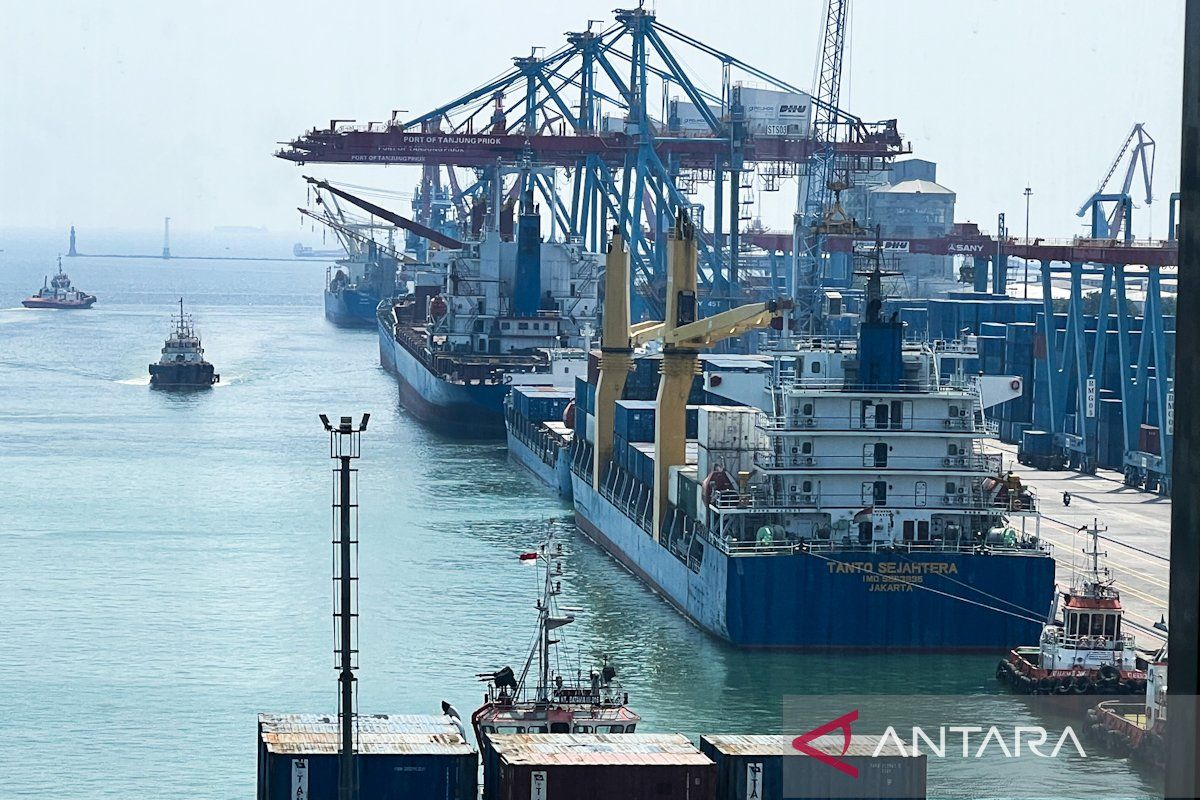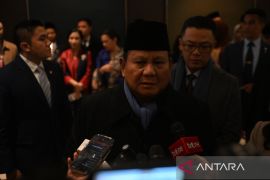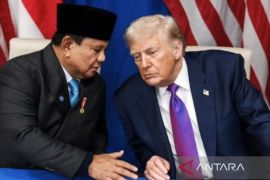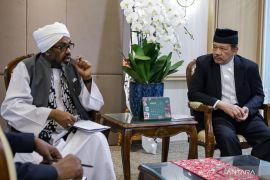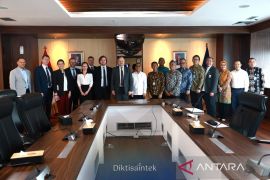The Indonesia–European Union Comprehensive Economic Partnership Agreement (IEU-CEPA) covers over 98% of tariff lines—representing nearly 99% of the total import value—and is expected to raise Indonesia’s national income by US$2.8 billion.
It also aims to create new jobs, reduce poverty, and strengthen the role of labor-intensive sectors including palm oil, coffee, textiles, apparel, footwear, and furniture.
“This agreement will directly impact five million workers in labor-intensive sectors,” said Coordinating Minister for Economic Affairs Airlangga Hartarto, emphasizing that simplified customs procedures and trade facilitation measures will benefit both sides.
He added that Indonesian micro, small, and medium enterprises (MSMEs), often burdened by complex European market regulations, will gain critical support under the new deal.
Beyond traditional exports, the agreement opens access for Indonesia’s high-tech products such as smartphones and telecom equipment, encouraging diversification beyond commodities.
It also unlocks investment opportunities in the country’s growing electric vehicle (EV) sector, with the EU eyeing Indonesia’s rich mineral reserves as strategic inputs for its green transition.
The IEU-CEPA will connect 723 million people across both regions, with a combined GDP exceeding US$21 trillion. Implementation is expected to begin on Jan. 1, 2027, following ratification by both the Indonesian and European parliaments.
Indonesia is targeting a 2.5-fold increase in exports to the EU within five years, particularly in labor-driven industries.
Historic Milestone
The agreement was signed in Bali by Minister Hartarto and European Commission Commissioner for Trade and Economic Security Maros Sefcovic, concluding nearly a decade of negotiations that began in 2016.
Talks, initiated under former President Joko Widodo, were finalized earlier this year, with the conclusion jointly announced by President Prabowo Subianto and European Commission President Ursula von der Leyen in Brussels last July.
The IEU-CEPA aligns with Indonesia’s 2025 Economic Package Program aimed at spurring job creation and industrial growth.
The EU is currently Indonesia’s fifth-largest trading partner, with bilateral trade reaching US$30.1 billion in 2024. Indonesia’s trade surplus with the EU also grew from US$2.5 billion in 2023 to US$4.5 billion this year.
To ensure compatibility with EU standards, Indonesia has reinforced its compliance mechanisms.
“We have a mutual recognition agreement (MRA) covering product standards,” Hartarto said.
He cited existing certifications for palm oil, such as the Roundtable on Sustainable Palm Oil (RSPO) used in Europe, and Indonesia’s own Indonesian Sustainable Palm Oil (ISPO) system.
Other sectors, including timber and automotive, also meet sustainability and legal compliance standards under Indonesia’s Timber Legality Verification System (SVLK).
Sefcovic praised the breadth of the deal, highlighting shared commitments to sustainability and capacity development for MSMEs, which play a key role in Indonesia’s domestic economy.
Business Hopes
The Indonesian Employers’ Association (Apindo) welcomed the IEU-CEPA as a vehicle for boosting competitiveness, increasing foreign direct investment, and creating opportunities not only for large corporations but also for professionals and smaller businesses.
“This isn’t just about trade—it’s a bridge to the future,” said Apindo Chairwoman Shinta W. Kamdani. She stressed that the deal enables the transfer of technology and deeper cooperation in areas beyond goods and services.
With the agreement, Indonesia becomes the third ASEAN country—after Singapore and Vietnam—to secure a preferential trade deal with the EU.
In 2024, Indonesian exports to the EU totaled US$17.34 billion without any special framework. Once the IEU-CEPA comes into force, almost all tariff barriers will be lifted, offering significant cost advantages to exporters.
Kamdani said the pact is likely to boost business capacity inclusively, especially for small and medium-sized enterprises.
“The EU has stringent requirements, especially related to sustainability and deforestation-free supply chains under the EUDR,” she said, referring to the European Union Deforestation Regulation.
She emphasized that capacity-building support outlined in the agreement will help Indonesian businesses meet these standards, ultimately improving the quality and competitiveness of exports.
The agreement also brings development potential for MSMEs in various sectors, from agriculture and fisheries to manufacturing.
Kamdani said Apindo is committed to ensuring the IEU-CEPA is implemented as a "living instrument" that delivers shared prosperity, not merely a policy document.
Outlook and Next Steps
With ratification expected over the next two years, both Indonesia and the EU are preparing for implementation, including technical consultations and domestic reforms to harmonize standards and regulations.
For Indonesia, the IEU-CEPA represents both a strategic economic opportunity and a test of its ability to adapt to high-standard global trade frameworks. For the EU, the deal reinforces its Indo-Pacific engagement and provides access to key raw materials needed for its green industrial strategy.
If successfully implemented, the agreement could serve as a template for future EU-ASEAN trade integration and position Indonesia as a key manufacturing and investment hub in the region.
As Kamdani concluded, “This agreement must work not just for the few, but for the many—and that’s what we will be watching closely.”
Related news: Indonesia, EU seal historic trade pact slashing 98 percent of tariffs
Related news: IEU-CEPA to boost EV investment, create jobs in Indonesia: Minister
Editor: Rahmad Nasution
Copyright © ANTARA 2025
